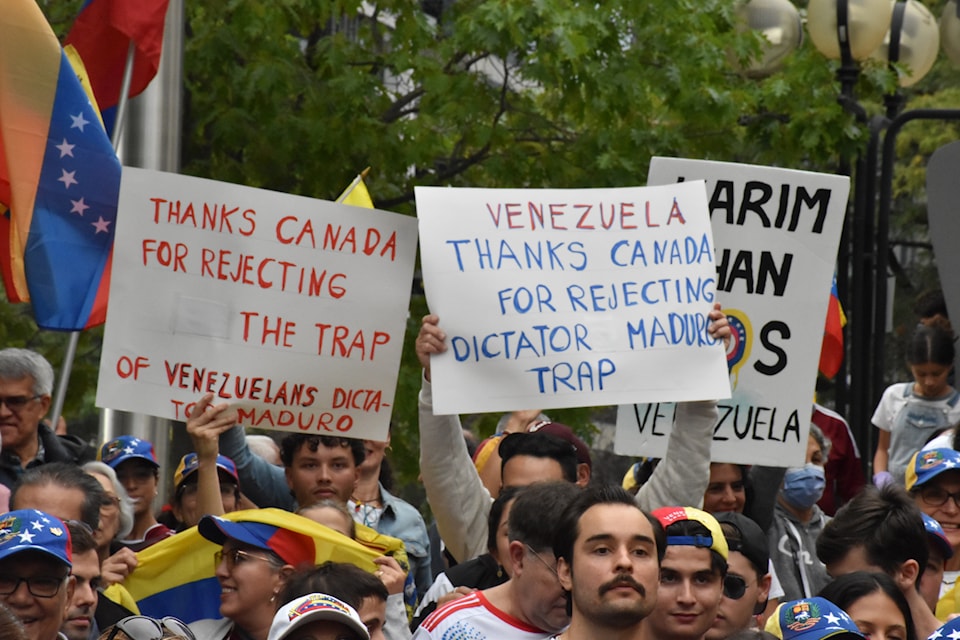Around 100 Venezuelans met across the U.S. Consulate in downtown Toronto last Saturday to protest the disputed July 28 elections.
In an emotional and tense atmosphere, the expatriates met and held speeches, danced, and played music on University Avenue while demanding the world acknowledge Edmundo Gonzalez as the elected president.
Incumbent Nicolas Maduro claimed victory in an election and is alleged to be withholding the ballot tallies.
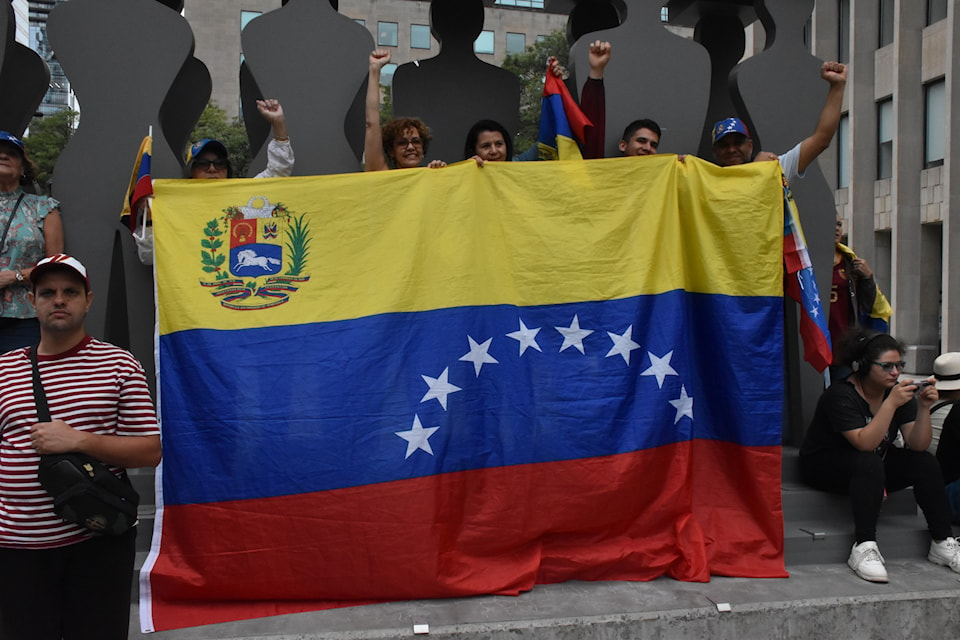
The protesters demanded freedom for all the people deprived of their liberty, for the world to recognize Gonzalez as the new elected president and for an end to human rights violations.
The demonstration was part of a global protest called by the opposition leader Maria Corina Machado two months after the elections. Machado was denied the ability to run for office by the government and she and other opposition leaders threw their support behind Gonzalez.
Rebecca Sarfatti, a political scientist, and creator of the platform “Venezolanos en Toronto”’ said that their goal is to restore democracy to Venezuela, even if it may not look like it’s working.
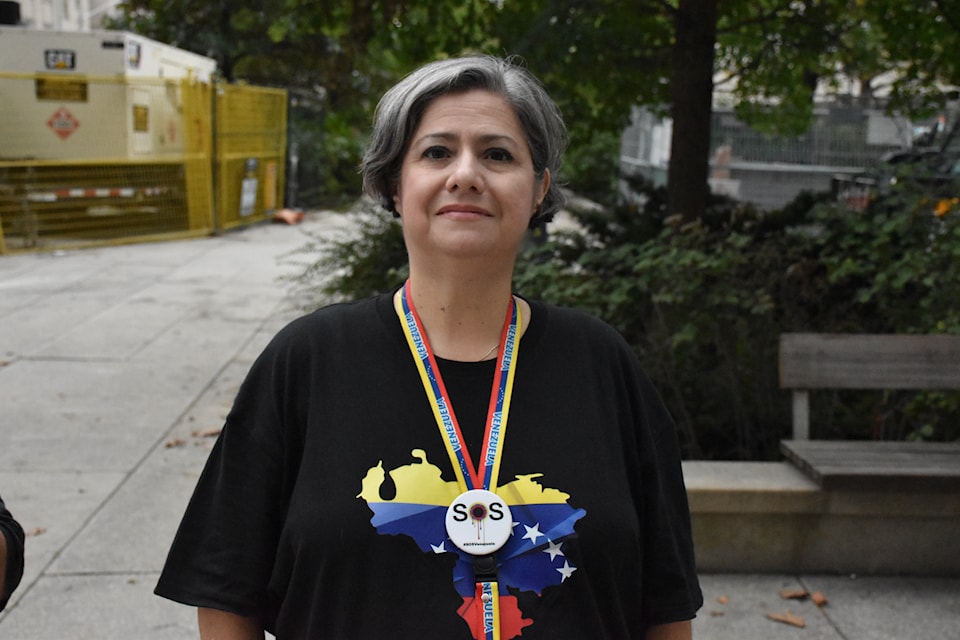
“We are in a dynamic moment,” said Sarfatti, who came to Canada in 2001. “I can tell you one thing today and tomorrow another completely different.”
She said Canada has helped the Venezuelan people significantly in the past years.
Sarfatti said January will be a crucial moment for the future of the South American country since it’s when the newly elected president must be sworn in.
“In Venezuela, there is no separation of powers,” she said. “He (Maduro) does what he pleases.”
Sarfatti said this fight is not between right or left, it’s about democracy against dictatorship.
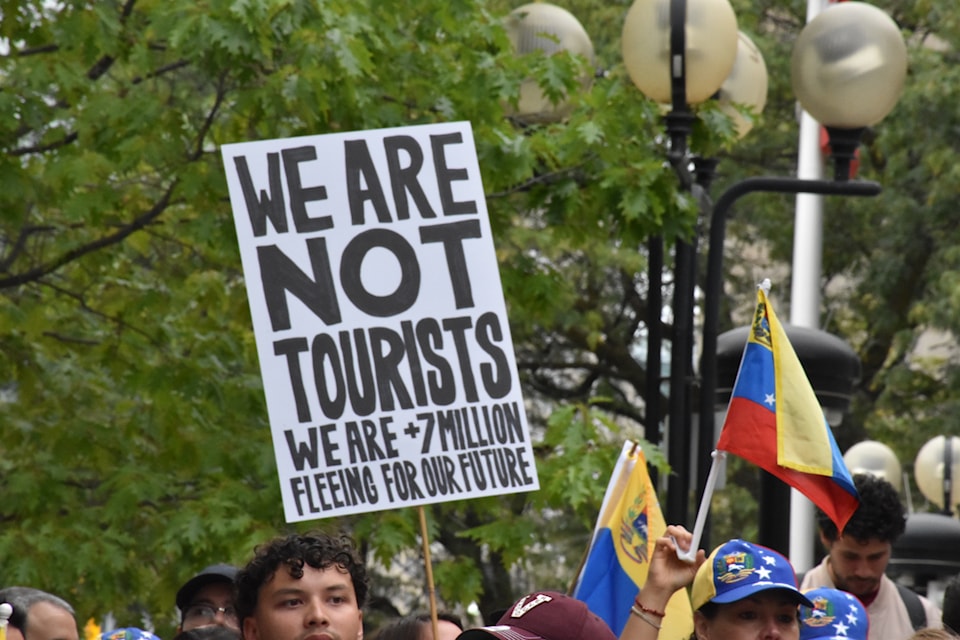
She said several countries are starting to turn their backs on the regime.
“They (Latin American countries) aren’t being automatic allies as they were in the past,” Sarfatti said. “They don’t recognize any results without the papers.”
The current crisis is also affecting those countries significantly, especially on migration, she said.
Sarfatti said Maduro’s allies including Russia, China and Cuba are key to keeping Maduro in power.
Past Venezuelan elections can’t be considered democratic, according to the Carter Center, a non-profit organization established by Jimmy and Rosalynn Carter and Emory University.
“The Carter Center, which was invited to monitor the election, said it could not verify or corroborate the results of the election declared by the National Electoral Council,” it said.
It said the election didn’t follow any basic international criteria to guarantee free elections.
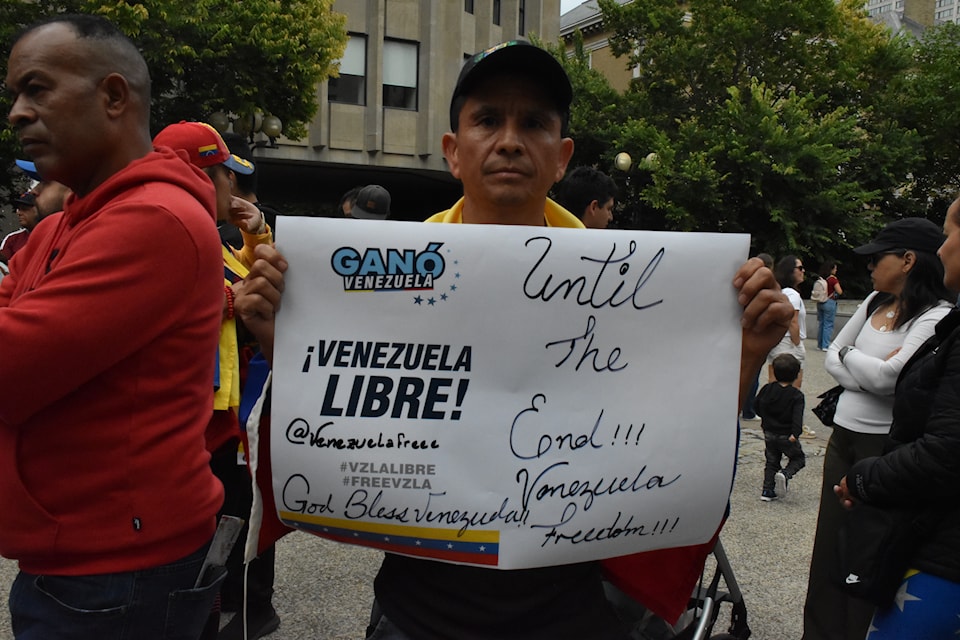
Its report noted the electoral campaign was biased towards Maduro and that opposition candidates were arbitrarily ineligible to participate.
“Throughout the electoral process, the CNE demonstrated a clear bias in favour of the incumbent (Maduro),” the Carter Center said.
The report said that despite so many irregularities before and during the election, Venezuelans went out to vote peacefully.
The Carter Center is not the only organization to denounce the current situation of the country, especially after the election.
Eddie Ramirez, former president of Venezuelan oil company Palmaven, told Humber Et Cetera he was fired on TV by Hugo Chavez in 2002, explaining that authoritarian practices from the government started a long time ago.
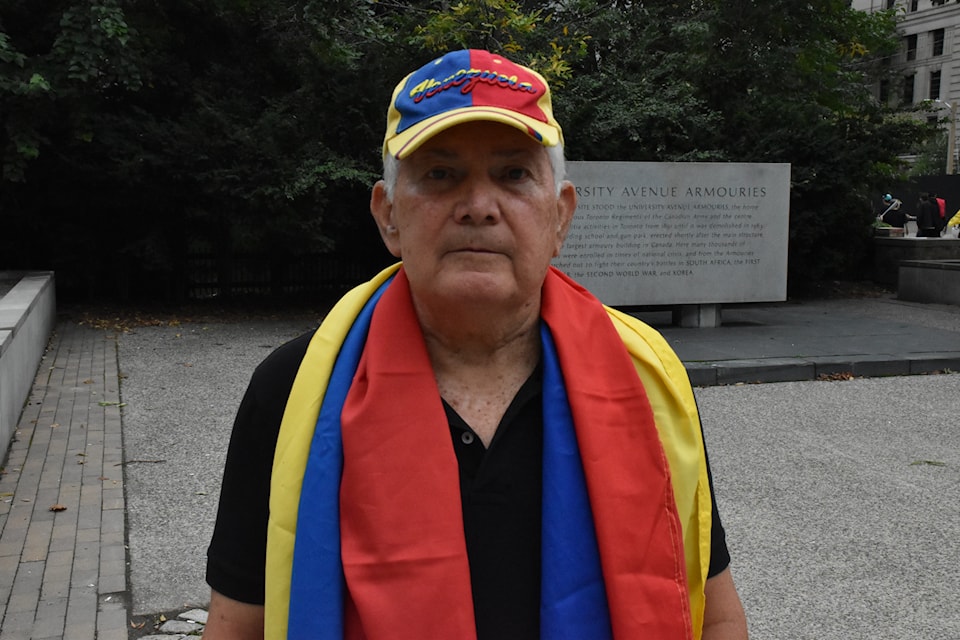
“I was fired after retirement for making statements (in favour of the strike),” he said. “We denounced corruption cases and accidents for lack of maintenance in oil refineries.”
Ramirez said he was part of the national strike of April 11, 2002, that ended up with Chavez's resignation, although he came back after that.
He also said corruption and oil refinery accidents are more frequent than ever at this moment, causing severe damage to the environment and people.
Ramirez said the Venezuelan diaspora has a big impact any time a protest is called by the opposition, especially with all the restrictions and threats Venezuelans face just for protest.
A report from the UN Independent International Fact-Finding Mission confirmed the escalation of repression by the regime since the election.
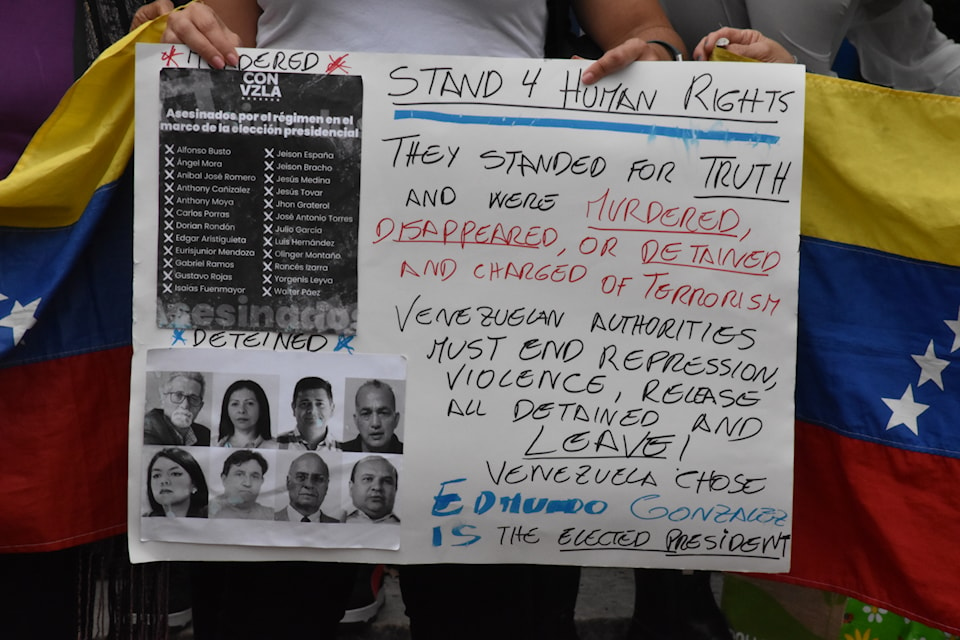
“Venezuela’s government has dramatically intensified efforts to crush all peaceful opposition to its rule, plunging the nation into one of the most acute human rights crises in recent history.”
Marta Valiñas, the mission’s chair, said the repression from Maduro’s government is worsening, especially compared to previous years.
“The recent repression, due to its intensity and systematic nature, represents a very serious attack on the fundamental rights of the Venezuelan people,” she said in the report.
The report said the week after the elections, repression from the government ended with more than 2,000 arrests, including children and people with disabilities accused of terrorism.
There were reports of people being taken by police forces out of their homes for just posting on social media messages against the government, the UN said.
Canada’s position in the Venezuelan crisis has been clear.
Foreign Affairs Minister Mélanie Joly said in a statement issued on Sept. 9 that Canada categorically condemns the escalation in government violence towards the Venezuelan people.
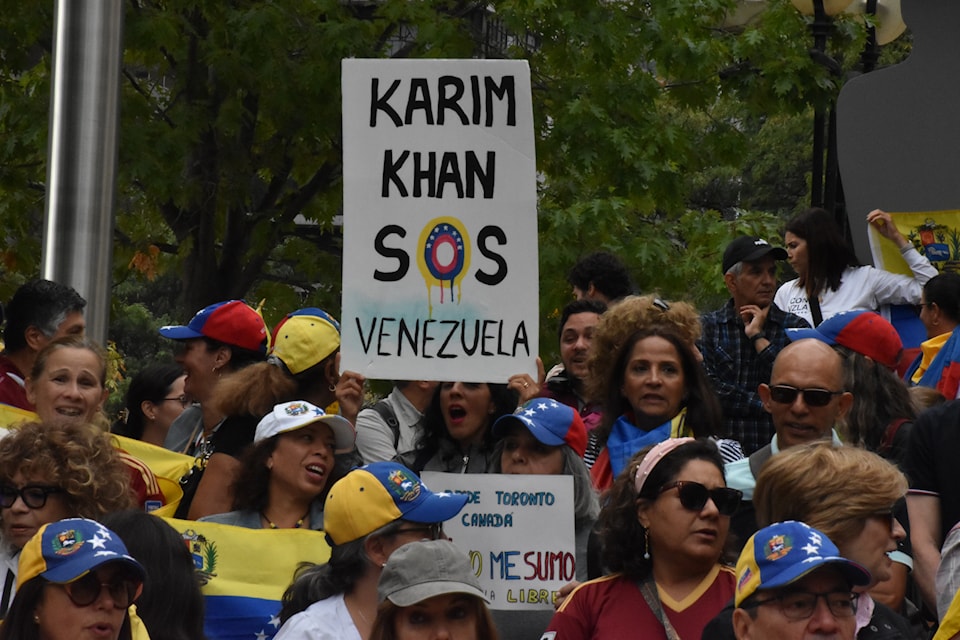
“We also condemn the use of repressive tactics by the Venezuelan authorities to create a climate of fear and intimidation among the Venezuelan population,” she said.
Joly said that Gonzalez’s exile would be unacceptable in any democratic country, adding to the criticisms of Maduro’s regime. He is now in Spain.
“Canada continues to call for negotiations to ensure that the democratic will of the Venezuelan people, as expressed in the July 28 elections, is respected and a peaceful transition process is established,” she said.
Joly said the International Criminal Court (I.C.C.) must keep addressing possible crimes against humanity committed in the country from 2017.
“Canada has stood, and will continue to stand, by the people of Venezuela and their desire to live in a peaceful and democratic society,” she said.
According to Statistics Canada, the 2021 census showed nearly 27,500 Venezuelans live in the country with 12,200 Venezuelans in Ontario.
Andres O’Brien, a protester, said he attended demanding freedom for Venezuela.
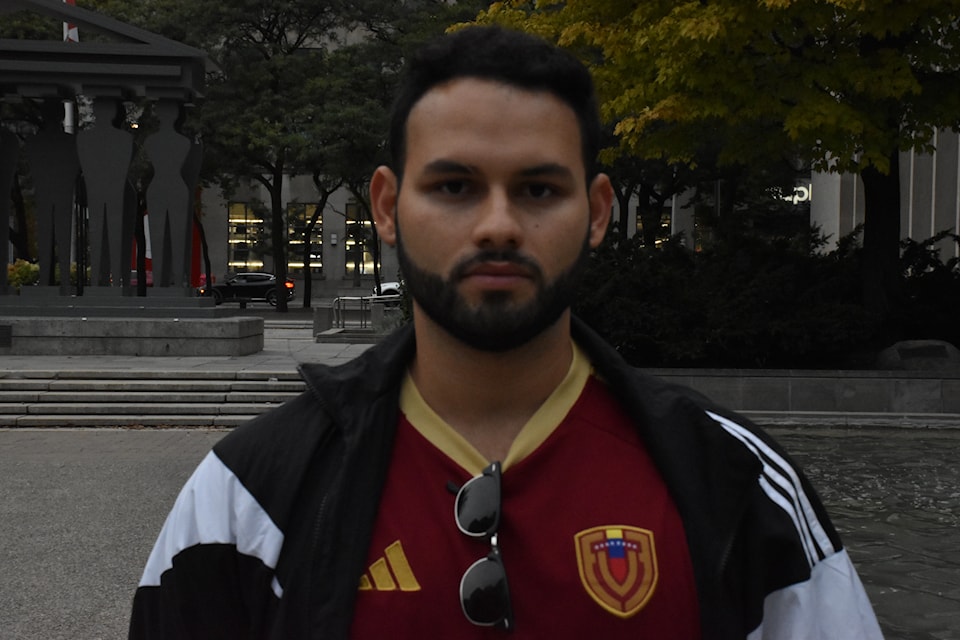
“This isn’t a quick fight, little by little things will get better,” O’Brien said.
He said Venezuelans need to stay together and supportive and believes the country will eventually be free.

